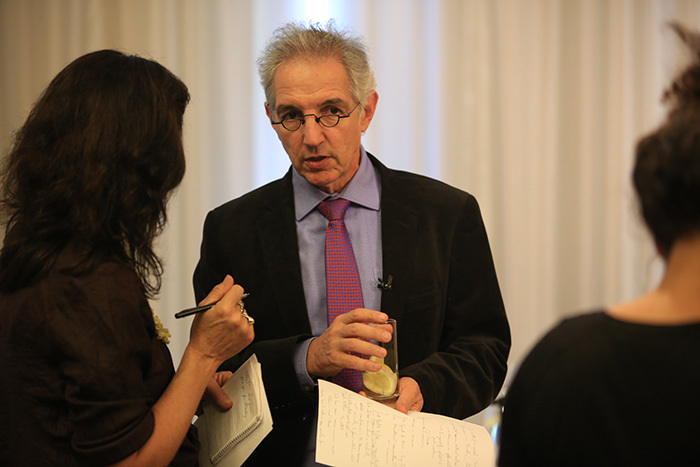VC calls for differentiated fee structure
30 October 2015 | Story by Newsroom
Vice-Chancellor Dr Max Price proposed a fundamental rethink of university fee structures and that government reviews its financial aid scheme as potential long-term solutions to a looming funding crisis in higher education.
Price was speaking at a press conference held to update the media following an agreement between UCT management and trade union NEHAWU to end outsourcing at the university. The agreement comes less than a week after President Jacob Zuma announced a 0% increase in 2016 university fees.
According to Price, government will cover most of the shortfall due to these latest developments and pointed out that UCT is expected to cover 20% to 30% of that shortfall.
In answer to the countrywide student protest against high university fees, higher education minister Blade Nzimande has set up a task team to investigate the matter. The task team is expected to report on its findings in six months' time. Another task team was set up by the minister to look at insourcing at tertiary institutions.
Price proposed a differentiated fee structure linked to income, an overhaul of government's financial aid scheme, and a graduate tax as possible long-term solutions to a looming funding crisis in higher education.
"I think we should investigate and propose a system that has differentiated fees linked to income and therefore also differentiated fee increases. We need to protect the poor and have very low fees for poor students and almost 0% year-on-year increases for them," suggested Price.
He added that wealthier students should pay full fees and that increases charged to them should be in line with "university inflational increases".
Price also announced he was in favour of a graduate tax and that those who have benefited from a tertiary education subsidised by taxpayers can be expected to give back to society and thus facilitate greater access to those who cannot afford it.
He believes that government's financial aid scheme should be significantly beefed up. "A partial financial aid system does not help us. We need a system that covers the fees fully," he stated.
A community pulling together
Reflecting on the two weeks of protest at UCT, Price said he was proud of the "majority of students" who "showed solidarity and support in legitimate ways".
"They are the future leaders of this country. The way they have articulated their demands in the meetings I have attended is really something we can be enormously proud of and gives us confidence for the future of this country."
He also mentioned the moral and financial support the university has received so far from families of wealthier students:
"They are willing to pay the increase in order to ensure that other people have better access to higher education and that the quality of the education we offer at UCT is preserved. We've also had many alumni asking us to set up a special fund they can contribute to, to ensure we meet the deficits. We plan to appeal to our alumni, parents and the private sector to help fund the cost of 0% increase and insourcing. I am confident that the university community will pull together and resolve this challenge," Price concluded.
Story by Abigail Calata. Photo by Michael Hammond.
 This work is licensed under a Creative Commons Attribution-NoDerivatives 4.0 International License.
This work is licensed under a Creative Commons Attribution-NoDerivatives 4.0 International License.
Please view the republishing articles page for more information.









